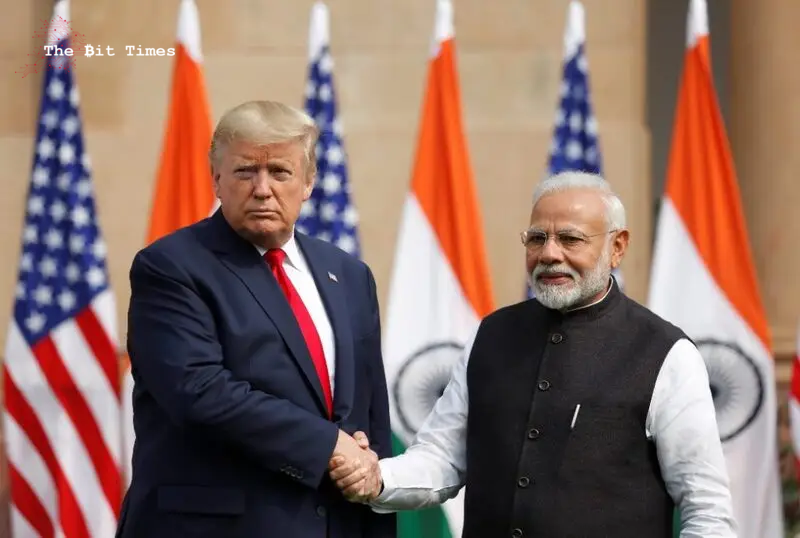One BRICS Country Rejects De-Dollarization After Trump's Threats
President-elect Donald Trump recently threatened BRICS countries to impose 100% tariffs on goods entering the US if they continue with the de-dollarization agenda. The threat came even before he assumed office sending a clear message that attempts to de-dollarize will be punished with consequences.
Also Read: BRICS: Global US Dollar Payments Fall Below 50%
On the heels of the threats issued by Trump, one BRICS country, which is a close ally to the US is backtracking on the de-dollarization agenda. The member nation is washing its hands from the initiative as it needs the US dollar to keep its economy afloat. Without the USD, its GDP could shrink and not become a challenge to developed countries.
Also Read: Top Economist Predicts the Future of BRICS Currency
BRICS: India Rejecting the De-Dollarization Agenda After Trump’s 100% Tariff Threats

BRICS member India is downplaying the de-dollarization initiative after Trump’s recent 100% tariff threats on trade. The Reserve Bank of India (RBI) Governor, Shaktikanta Das, said that the country will not ditch the US dollar. He made it clear that India has no plans of de-dollarization and no decision on the subject has been made.
Also Read: BRICS Countries React to Trump’s 100% Tariff Threats
“Nobody is talking about or thinking about de-dollarization. There is no step we have taken to de-dollarize,” said Das after Trump’s threats to Bloomberg. “De-dollarization is certainly not our objective and is not on the table. BRICS currency was an idea raised by one of the members and was discussed but no decision has been taken.”
However, the RBI Governor explained that BRICS member India wants to de-risk all tensions to keep the country economically safe. “We want to de-risk trade as dependence on one currency can be problematic at times because of appreciation or depreciation. Our efforts are focused on de-risking trade,” he said. “The geographical spread of the countries has also to be kept in mind, unlike the Euro zone which has geographical contiguity,” Das summed it up.
Comments
Post a Comment